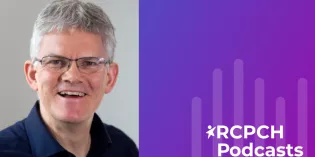
Summary
- Those who prescribe for a child should choose the medicine which offers the best prospect for that child, aware that such prescribing may be constrained by the availability of resources. Children should be able to receive medicines that are safe, effective, appropriate for their condition, palatable and available with minimal clinical risk.
- The informed use of some unlicensed medicines or licensed medicines for unlicensed applications is necessary in paediatric practice.
- Health professionals should have access to reliable and up-to-date information where possible on any medicine they prescribe, dispense or administer, and on its availability.
- In general, it is not necessary to take additional steps, beyond those taken when prescribing licensed medicines, to obtain the consent of parents, carers and child patients to prescribe or administer unlicensed medicines or licensed medicines for unlicensed applications.
- NHS Trusts and Health Authorities should support therapeutic practices that are advocated by a respectable, responsible body of professional opinion.
- Where available an appropriate licensed preparation should be prescribed and supplied in preference to an unlicensed preparation.
Licensing
- For a medicine to be marketed in the United Kingdom it must have received a Marketing Authorisation and is then said to be licensed. Many medicines that are given to children are not licensed for the particular indication, the age of the child or for the route of administration. Additionally they may not be in a suitable formulation. This position has arisen when a pharmaceutical company has made an application to the Licensing Authority for a Marketing Authorisation for use of the medicine in adults, but had chosen not to make an application for the use of that medicine in particular ways in children. Certain medicines that are given to children have not received a licence for any indication, and are said to be unlicensed.
In 2007, European (including UK) law introduced a requirement for pharmaceutical companies to undertake studies in children as part of the development plan for most new medicines. Over time, it is anticipated that the number of medicines licensed for use in children will increase. When a licensed medicine becomes available it should, therefore, be prescribed and supplied in preference to an unlicensed preparation. - The use of unlicensed medicines or licensed medicines for unlicensed applications is necessary in paediatric practice when there is no suitable alternative. Such uses are usually informed and guided by a respectable and responsible body of professional opinion.
- The Medicines Act and Regulations (which incorporate the relevant EC directives) provide exemptions which enable prescribers to:
- prescribe unlicensed medicines
- use clinical trials medicines which are not yet authorised to be marketed
- use or advise on the use of licensed medicines for indications, or in doses, or by routes of administration, outside the recommendations of the licence
- override the warnings and the precautions given in the licence.
- In each case, the prescriber has to be able to justify the action taken as being in accordance with a respectable, responsible body of professional opinion.
Sources of information
- Although the choice of a medicine is not necessarily determined by its licence status, it will take account of information made available as a consequence of licensing and contained in the marketing authorisation. When the Marketing Authorisation does not include indications for use in children, the licence is of limited help. When the medicine is unlicensed, the necessary information must be sought elsewhere. It often is available, though might not be readily accessible.
- The British National Formulary for Children (BNF-C) provides reliable and up-to-date information and guidance on medicines for children.
Information for other health professionals and the public
- Parents, patients and teachers, and others in loco parentis, require information about medicines. The information must be given in a way they can understand, and be accurate and consistent. This is particularly important when the specialist who has advised the use of unlicensed medicines or licensed medicines for unlicensed applications, hands over the care of the patient and responsibility for the administration of the medicine to someone else. Given the complexity of therapeutic and pharmacological information, and the burdens upon those giving and receiving it, the need is for sound, practical and sensible arrangements for communication, supplemented by readily available sources of reference.
It is essential that health professionals should have ready access to sound information on any medicine they prescribe, dispense or administer, and on its availability. The BNF-C fulfils most of these roles.
Consent of parents, carers and patients
- Health professionals respect the right of children and their parents to participate in decisions on the health care of the child, and seek to ensure that those decisions are properly informed. In normal paediatric practice no additional steps, beyond those taken when prescribing licensed medicines, are required to obtain the consent of patients and parents / carers for the use of unlicensed medicines.
- Prescribers are anxious that the licence status of a drug should not be perceived as reflecting what is or is not best for the child. They are mindful of a possible impact upon the confidence of parents and patients who might then be reluctant to accept advice, with consequences for a child who might not receive a medicine that offers benefit.
- Most licensed medicines are dispensed in standard packages together with a Patient Information Leaflet (PIL) approved by the Licensing Authority. When the licence does not include indications for children, the PIL may caution against such use. Naturally, this may undermine confidence in the advice given by health professionals, besides provoking a call for explanation. The Committee working in partnership with the WellChild charity has produced leaflets on medicines, including one on Unlicensed Medicines which explains why it may be necessary to prescribe unlicensed medicines or to use licensed medicines for unlicensed applications. This leaflet will be made widely available to all, especially parents/carers, hospitals and pharmacies via the Medicines for Children: Information for Parents/Carers website where leaflets are freely available to download.
- There are circumstances when a clinician may decide to give fuller information than is usually judged necessary. These may arise when a medicine is new or experimental; or when the balance of risk versus benefit is less clear or when the concerns of some parents, carers or patients suggest a more detailed discussion is needed.
Policies of NHS Provider Organisations
- Some NHS Provider Organisations have suggested that a clinician should not use an unlicensed medicine, or a licensed medicine for unlicensed application. In 1993 the Department of Health stated that it would not expect that a health authority would seek to fetter a prescriber’s freedom to prescribe by expressly directing its medical staff against prescribing unlicensed products or licensed products for unlicensed purposes. The Department of Health also stated that, should a health authority so direct its medical staff, a court would be reluctant to support the authority in those circumstances.
- However, the emphasis on risk management and evidence-based medicine in Clinical Governance framework implies that Trusts may be encouraged to introduce systems and protocols to monitor, and even direct, the use of both licensed and unlicensed medicines. We understand that, because the Medicines Act (1968) exemptions remain current, the courts would not hold the prescription of an unlicensed medicine to be a breach of the duty of care, if that treatment was supported by a respected body of medical opinion. The best evidence available should always inform the prescription of medicines for children.
- We consider that NHS Provider Organisations should support therapeutic practices that are advocated by a respectable, responsible body of professional opinion.
Updated authors
Dr Andy Fox
Dr Helen Sammons
Last updated: 6 December 2013
References
British Paediatric Association. A paediatrician’s guide to the UN Convention on the Rights of the Child. London: British Paediatric Association, 1995.
A Report of the Joint Working Party of the British Paediatric Association and the Association of the British Pharmaceutical Industry. Licensing Medicines for Children. London: Royal College of Paediatrics and Child Health, 1996.
The General Medical Council. Good Medical Practice. London: The General Medical Council, 2013
The General Medical Council Consent: patients and doctors making decisions together London: The General Medical Council, 2008
Department of Health. Letter to the President, British Paediatric Association, 3 November 1993. Department of Health.
REGULATION (EC) No 1901/2006 OF THE EUROPEAN PARLIAMENT AND OF THE COUNCIL of 12 December 2006 on medicinal products for paediatric use and amending Regulation (EEC) No 1768/92, Directive 2001/20/EC, Directive 2001/83/EC, & REGULATION (EC) No 1902/2006 OF THE EUROPEAN PARLIAMENT AND OF THE COUNCIL of 20 December 2006 amending Regulation 1901/2006 on medicinal products for paediatric use.










